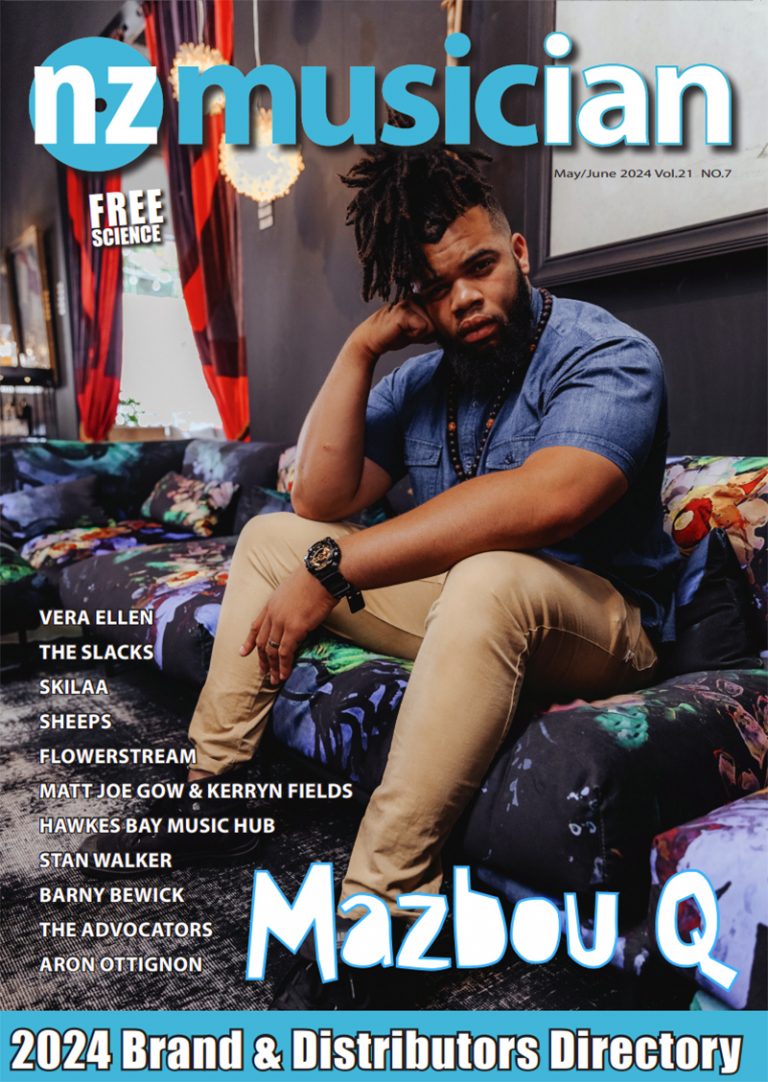Wellington City Shake ‘Em On Downers: Just Take That Streetcar That’s Goin’ Uptown
Wellington City Shake ‘Em On Downers: Just Take That Streetcar That’s Goin’ Uptown
Formed in 2011, The Wellington City Shake-‘Em-On-Downers play music inspired by classic New Orleans’ brass bands and the greats of the early jazz and swing era. Having recorded live at Orange Studio in Christchurch earlier this year the septet now have a 12-track album to illustrate their charismatic 1920s and ’30s repertoire, which invariably has audiences up and dancing before they even warm their seats. Chloe Cairncross met up with the capital’s favourite group of swingers.
When I first saw the Wellington City Shake-‘Em-On-Downers perform live at Southern Cross bar a couple of years ago, I knew nothing about them apart from their lengthy but suitably apt name. As a rule, I don’t like to dance –– I appreciate live performances with a subtle toe-tap under the table. However, some crazy voodoo came over me that night. I’d only had one drink, but there I was, shimmying away with pretty much every other body packed in the venue.
The band’s unavoidable energy and joy is infectious. Accordionist, Emma Wollum, neatly identifies this.
“I want to instil people with a feeling of second-hand joy, like, ‘Oh god, that looks like so much fun, I want to be doing that!’ and then they will, and that’s great.”
The New Orleans’ swing outfit have a keen sense of the utility of humour, and their affability, especially upon meeting them, exemplifies exactly why this band is now a fixture of the Wellington scene.
Beginning circa 2011, core membership has swollen with time to the steady seven that the group boasts today. Other than Wollum who “…had a proper jazz education at an American high school,” all of the players attended the NZ School of Music.
Their talent and education means that rehearsals are not routinely scheduled, lending a raw and attractive individuality to each performance.
“Every time we play something live it’s usually a different arrangement than what it was the previous night, says double bassist Robert Henderson. “So [the songs] are all vehicles of improvisation or creative arrangements that everyone partakes in.”
Sets are generally a half-and-half mishmash of original compositions and standards. The original compositions purposely sound like they are fresh from the 1920/’30s as well, so that they can slip neatly within the playlist. Songwriting is typically a combined effort as drummer Hikurangi Schaverien-Kaa observes
“It’s collaborative in a different way because improvisational music requires an input from everyone. It’s up to the composer to provide a vehicle for that self-expression.”
Individual members will turn up to a meeting with the bare bones of a track, fully prepared for the group to augment it.
“It’s never a case of too many cooks. We all bring a bit of seasoning to the overall dish,” says sous-chef Henderson.
The group are well versed in the culture and context of what they do. I hadn’t even thought about the issue of the ‘Dixieland’ epithet but Wollum brings attention to it.
“We’re actually trying to shy away from the Dixieland label because we don’t like the cultural connotations, so we really are more of a New Orleans-style swing band now…… we acknowledge it but we aren’t going to glorify it.”
“I don’t want to get in to a big political rant about it,” Schaverien-Kaa adds, “but we are socially aware of the tradition behind our music.”
“Jazz is an African-American music and you have to pay respect to that, and having a detailed acknowledgement of that is crucial to playing the music in a truthful way…… it’s easy to look back on history like it was this magical time where nothing was going wrong, but a lot of things were going down and this music was a response to that, so we want to acknowledge that.”
Their music may be delivered with wide grins and engender high spirits, but, historically, it was all a reaction to the bigger, nastier picture. With this in mind, saxophonist Oscar Laven suggests that the freewheeling attitude of the music means; “You can get drunk to this and dance to it, and realise you are not having a shit time.”
“We are essentially playing club-bangers, they just happen to be from the ’30s,” Wollum concedes wryly.
With pockets of jazz players sparsely populated outside of the city centres, the novelty of this music makes New Zealanders particularly receptive to the band. This means that live ventures are immensely more enjoyable than time in a recording studio.
“Punters go out to have a good time, whether that is to get smashed or to be artistically entertained. Why not cater for both?” asks Henderson.
“A lot of people take themselves way too seriously; they’re just musicians,” Robert Laurent (guitars/banjo) sagely adds.
For now the band want to progress by delving deeper into their particular meld of music, rather than pursuing broader, more various creations. They want to become more authentic. They already have the old school Dixie swing, the New Orleans’ jazz and a bit of rock and roll creeping in – making their brand of entertainment varied as it is. So grab your friends, grab some wine, and put on their version of Cab Calloway‘s Reefer Man for an up-tempo raucous good time.


